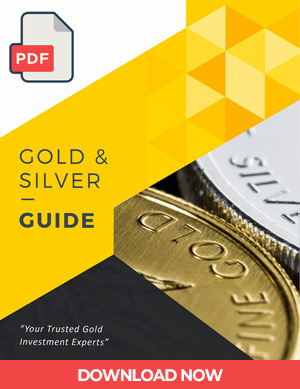Liberty Safe, the nation’s largest manufacturer of gun safes, recently fell into hot water.
![]() Bullion.Directory precious metals analysis 18 September, 2023
Bullion.Directory precious metals analysis 18 September, 2023
By Clint Siegner
Director of Money Metals Exchange
Some were not happy to hear the company cooperated with the FBI’s request, particularly given that many perceive the crackdown on January 6th protesters as politically driven and illegitimate.
The backlash at Liberty Safe raises questions about how companies should act in defense of their clients’ privacy.
Our clientele sometime asks questions about what Money Metals will and will not report. We address these questions regularly in our writings, but it is worth going over again.
Money Metals does occasionally receive a subpoena from attorneys and law enforcement agencies. These pertain to matters ranging from criminal investigations to divorce.
To start with, we do not, by default, respond to un-official requests coming from investigators or other third parties.
On very rare occasions, we have received a subpoena that is both served properly (often they are not) and well drafted – which is to say specific and narrowly tailored. In such cases, it may be our legal obligation to comply.
However, Money Metals clients are entitled to privacy and discretion, per our terms.
That’s why we also make it a practice to notify customers of the existence of a subpoena so they have an opportunity to object, including going to court to file a motion to quash if they desire.
Another category of questions has to do with mandatory reporting.
Virtually all transactions with Money Metals are conducted without any IRS reporting requirement whatsoever.
Unfortunately, most other precious metals dealers report WAY more customer transactions than the law actually requires. We’ve always been baffled by how much government reporting is being done and have determined the problem stems from erroneous information published by an industry trade group.
At Money Metals Exchange, however, we follow the law and have examined it very closely for ourselves – and we’ve nailed down the very limited reporting obligations that actually do exist.
In the normal course of business, we are not required to report your purchase, with one extremely rare exception. For a disclosure requirement to be triggered, BOTH of the following conditions have to be met:
The transaction is (or related transactions are) larger than $10,000 in size. AND payment is made using actual cash (i.e. Federal Reserve notes and U.S. coins) or with two or more cash instruments (defined as money orders, cashier’s checks, or traveler’s checks) which, individually, are $10,000 or less but when totaled together equal more than $10,000.
Personal checks, debits, bank wires, and credit card payments are NOT considered cash or cash instruments. Therefore, purchases using these methods of payment do not trigger disclosure by a dealer regardless of the transaction amount(s).
The IRS disclosure document involved in the extremely scenario described above is called Form 8300, and it’s applicable to all cash transactions in the broad U.S. economy meeting the above conditions – not just precious metals transactions.
Likewise, we are required to report the SALE of your precious metals only in extremely rare circumstances.
According to IRS regulations, only those items and quantities that can be used to fulfill a regulated Futures Contract (RFC) trigger the 1099B reporting requirement. Those items are currently as follows:
- Sales of 50 oz. platinum (purity requirement of .9995) in bar sizes of 10 oz. or larger.
- Sales of 100 oz. of palladium (purity requirement of .9995) in bar sizes of 10 oz. or larger.
- Sales of 100 oz. of gold (purity requirement of .995) in not less than one 100 oz. bar or three (3) one kilo bars (32.15 oz each).
- Sales of 5,000 oz. of silver (purity requirement of .999) in not less than five 1,000 oz. bars.
Sales of silver bullion rounds, silver coins, one, five, 10, kilo, and 100 oz. silver bars, or any gold coins, rounds, or bars that are smaller than one kilo – no matter how large or small the sale may be – do not trigger a Form 1099B filing requirement.
It should be noted, however, that individual taxpayers have their own reporting obligations as to their own tax returns.
Because the IRS currently considers precious metals to be property, not money, it expects investors to accurately report any capital gains or losses measured in Federal Reserve note “dollars” when their bullion is sold.
Tax reporting is generally not required when bullion is purchased, or held. It is done when the metal is later sold and the investor realizes either a gain or a loss.
Money Metals is dedicated to maintaining the confidentiality of our customers, as outlined in our privacy policy. Investors should buy metals with confidence; transactions with us are private, secure, and discreet.
Clint Siegner


Clint Siegner is a Director at Money Metals Exchange, a precious metals dealer recently named “Best in the USA” by an independent global ratings group.
A graduate of Linfield College in Oregon, Siegner puts his experience in business management along with his passion for personal liberty, limited government, and honest money into the development of Money Metals’ brand and reach. This includes writing extensively on the bullion markets and their intersection with policy and world affairs.
This article was originally published here












 Material provided on the Bullion.Directory website is strictly for informational purposes only. The content is developed from sources believed to be providing accurate information. No information on this website is intended as investment, tax or legal advice and must not be relied upon as such. Please consult legal or tax professionals for specific information regarding your individual situation. Precious metals carry risk and investors requiring advice should always consult a properly qualified advisor. Bullion.Directory, it's staff or affiliates do not accept any liability for loss, damages, or loss of profit resulting from readers investment decisions.
Material provided on the Bullion.Directory website is strictly for informational purposes only. The content is developed from sources believed to be providing accurate information. No information on this website is intended as investment, tax or legal advice and must not be relied upon as such. Please consult legal or tax professionals for specific information regarding your individual situation. Precious metals carry risk and investors requiring advice should always consult a properly qualified advisor. Bullion.Directory, it's staff or affiliates do not accept any liability for loss, damages, or loss of profit resulting from readers investment decisions.

Leave a Reply